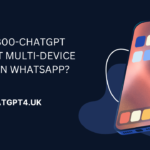Will ChatGPT Replace Lawyers in 2023? The field of artificial intelligence (AI) has made significant strides in recent years, and one of the areas where it has shown great promise is in the development of chatbots and virtual assistants.
These AI-powered tools have become increasingly sophisticated, able to understand and respond to human queries in a conversational manner. As the capabilities of these chatbots continue to evolve, some have begun to wonder: will ChatGPT, an advanced language model developed by OpenAI, replace lawyers in 2023?
In this article, we will explore this question and examine the potential impact of AI on the legal profession.
Understanding ChatGPT
ChatGPT is an AI language model that uses deep learning techniques to generate human-like text based on the input it receives. It has been trained on a vast amount of data, including books, articles, and websites, allowing it to understand and generate responses to a wide range of topics.
ChatGPT is designed to engage in natural language conversations and can provide information, answer questions, and even generate creative texts such as stories or poems.
The Potential of ChatGPT in the Legal Profession
The legal profession is known for its reliance on language and communication. Lawyers spend a significant amount of time researching and analyzing legal texts, drafting contracts and legal documents, and providing advice to their clients.
In recent years, AI technologies have been employed in legal research, document analysis, and contract review, streamlining some aspects of the legal process.
ChatGPT, with its advanced language processing capabilities, could potentially take this a step further by providing personalized legal advice and assistance to individuals.
Advantages of ChatGPT in the Legal Field
One of the primary advantages of using ChatGPT in the legal field is its ability to process and analyze large amounts of information quickly. Legal research often involves sifting through numerous cases, statutes, and regulations to find relevant information.
ChatGPT can streamline this process by swiftly identifying and summarizing key legal principles and precedents, saving lawyers valuable time and effort.
Additionally, ChatGPT can assist in drafting legal documents. Lawyers spend significant time crafting contracts, agreements, and other legal instruments. ChatGPT’s language generation capabilities can be leveraged to automate certain aspects of this process. By providing the necessary input and instructions, lawyers can potentially generate draft documents more efficiently and accurately.
Furthermore, ChatGPT can help improve access to justice. Legal services are often expensive, making it difficult for many individuals to afford legal representation. ChatGPT’s ability to provide personalized legal guidance at a fraction of the cost could potentially bridge this gap and make legal information more accessible to a broader range of people.
Limitations of ChatGPT
While ChatGPT offers many potential benefits to the legal profession, it also has some limitations. One significant concern is the issue of bias. AI models are trained on existing data, which may contain biases present in society.
Without careful monitoring and oversight, ChatGPT could unintentionally perpetuate or amplify existing biases within the legal system. This could have serious implications for fairness and justice.
Another limitation is the lack of human judgment and empathy. The practice of law often involves understanding the unique circumstances and emotions of clients, which may require empathy and subjective judgment.
While ChatGPT can provide information and analysis based on existing legal frameworks, it may struggle to offer the nuanced and contextual advice that human lawyers can provide.
The Importance of Human Lawyers
Despite the potential of AI-powered tools like ChatGPT, it is unlikely that they will completely replace human lawyers in the near future. The legal profession encompasses more than just providing information and analysis. Lawyers play critical roles as advocates, negotiators, and problem solvers.
They possess a deep understanding of legal principles and can apply their expertise to complex and unique situations. Moreover, the legal system often requires human judgment, discretion, and ethical decision-making, which AI models currently struggle to replicate.
Furthermore, the legal profession requires interpersonal skills and the ability to build trust and rapport with clients. Human lawyers can empathize with their clients, understand their concerns, and provide emotional support during challenging times. These aspects of legal practice are deeply rooted in human interactions and cannot be easily replaced by AI.
Ethical and Legal Responsibility:
Lawyers have a professional duty to act in the best interest of their clients and uphold ethical standards. AI tools like ChatGPT lack the ability to fully understand and adhere to legal and ethical obligations. Human lawyers are trained to navigate complex legal and ethical issues, ensuring that their client’s rights and interests are protected.
Complex Legal Analysis:
While ChatGPT can provide information and basic legal analysis, complex legal matters often require in-depth analysis and interpretation of statutes, regulations, and case law.
Human lawyers possess the critical thinking skills and expertise to apply legal principles to unique situations, considering various factors and potential consequences.
Courtroom Advocacy:
Courtroom advocacy is a crucial aspect of the legal profession. Human lawyers are trained to present arguments, cross-examine witnesses, and persuade judges and juries. This dynamic and interactive process demands the ability to think on one’s feet, respond to opposing counsel, and adapt to unexpected developments. ChatGPT, with its static nature, would struggle to replicate this level of dynamic advocacy.
Confidentiality and Privacy:
Lawyers are bound by strict confidentiality rules, ensuring that client information remains protected. While AI models like ChatGPT can raise concerns regarding data privacy and security, the legal profession places great importance on safeguarding client confidentiality. Human lawyers are trained in ethical and legal obligations related to confidentiality, providing clients with peace of mind.
Legal Innovation
While AI can automate certain repetitive tasks, it also opens up opportunities for lawyers to focus on more complex and value-added aspects of their work. By leveraging AI tools like ChatGPT, lawyers can streamline their research and document review processes, allowing them to allocate more time and resources to strategic thinking, client counseling, and innovative problem-solving.
Emotional Intelligence
Legal matters often involve high-stakes situations that can evoke strong emotions in clients. Human lawyers possess emotional intelligence and interpersonal skills that allow them to navigate these sensitive situations with empathy and understanding.
They can provide emotional support, manage conflicts, and guide clients through challenging legal processes. ChatGPT’s lack of emotional intelligence limits its ability to effectively address these emotional aspects of legal representation.
Conclusion
While AI technologies like ChatGPT have the potential to revolutionize the legal profession by streamlining certain tasks and improving access to justice, it is unlikely that they will completely replace human lawyers.
The legal profession encompasses a wide range of skills, including human judgment, empathy, and ethical decision-making, that AI models currently struggle to replicate. Instead, the future of law is likely to be a collaboration between human lawyers and AI-powered tools, where technology augments rather than replaces human expertise.
As we move forward, it is essential to embrace the opportunities AI presents while also recognizing and addressing its limitations and potential risks.
Frequently Asked Questions (FAQs)
Will ChatGPT replace lawyers entirely in 2023?
While AI technologies like ChatGPT have made significant advancements, it is highly unlikely that they will replace lawyers entirely in 2023 or the client counseling, and ethical decision-making, which AI models currently struggle to replicate.
ChatGPT can be a valuable tool in assisting lawyers with certain tasks, but it cannot replace the expertise, judgment, and human interaction that human lawyers provide.
How can ChatGPT be useful in the legal profession?
ChatGPT can be useful in the legal profession in several ways. It can assist lawyers in legal research, quickly analyzing vast amounts of information and providing relevant summaries.
ChatGPT can also aid in the drafting of legal documents by generating draft contracts and agreements based on given input. Additionally, ChatGPT can improve access to legal information and advice by providing cost-effective and personalized guidance to individuals who may not have the means to hire a human lawyer.
What are the limitations of using ChatGPT in the legal field?
While ChatGPT offers several advantages, it also has limitations. One significant concern is the potential for bias in its responses. AI models are trained on existing data, which may contain biases present in society.
Without careful monitoring and oversight, ChatGPT could unintentionally perpetuate or amplify existing biases within the legal system, affecting fairness and justice.
How can human lawyers and ChatGPT work together?
Human lawyers and ChatGPT can work together in a collaborative manner. Lawyers can leverage the capabilities of ChatGPT to streamline certain tasks, such as legal research, document analysis, and initial drafting.
This allows lawyers to focus more on higher-level strategic thinking, client counseling, negotiation, and courtroom advocacy. ChatGPT can serve as a valuable tool to augment and enhance the work of human lawyers, providing them with more efficient and accurate information.
What is the role of human lawyers in the era of AI?
Human lawyers will continue to play a vital role in the era of AI. They possess a deep understanding of legal principles, the ability to analyze complex situations, and the skills necessary to provide individualized advice and representation.
Human lawyers bring empathy, emotional intelligence, and ethical responsibility to their work, which AI models cannot replicate. Moreover, lawyers are essential in navigating the legal system, advocating for their clients, and ensuring that legal processes are fair and just.
Can AI technology like ChatGPT replace the need for legal education?
While AI technology can provide valuable assistance and streamline certain legal tasks, it cannot replace the need for legal education. Legal education goes beyond the acquisition of information and involves critical thinking, analysis, and the development of professional skills.
Legal professionals require a deep understanding of legal principles, ethical frameworks, and the ability to apply them in real-world contexts. Human lawyers bring a level of expertise and experience that cannot be replaced by AI alone.







